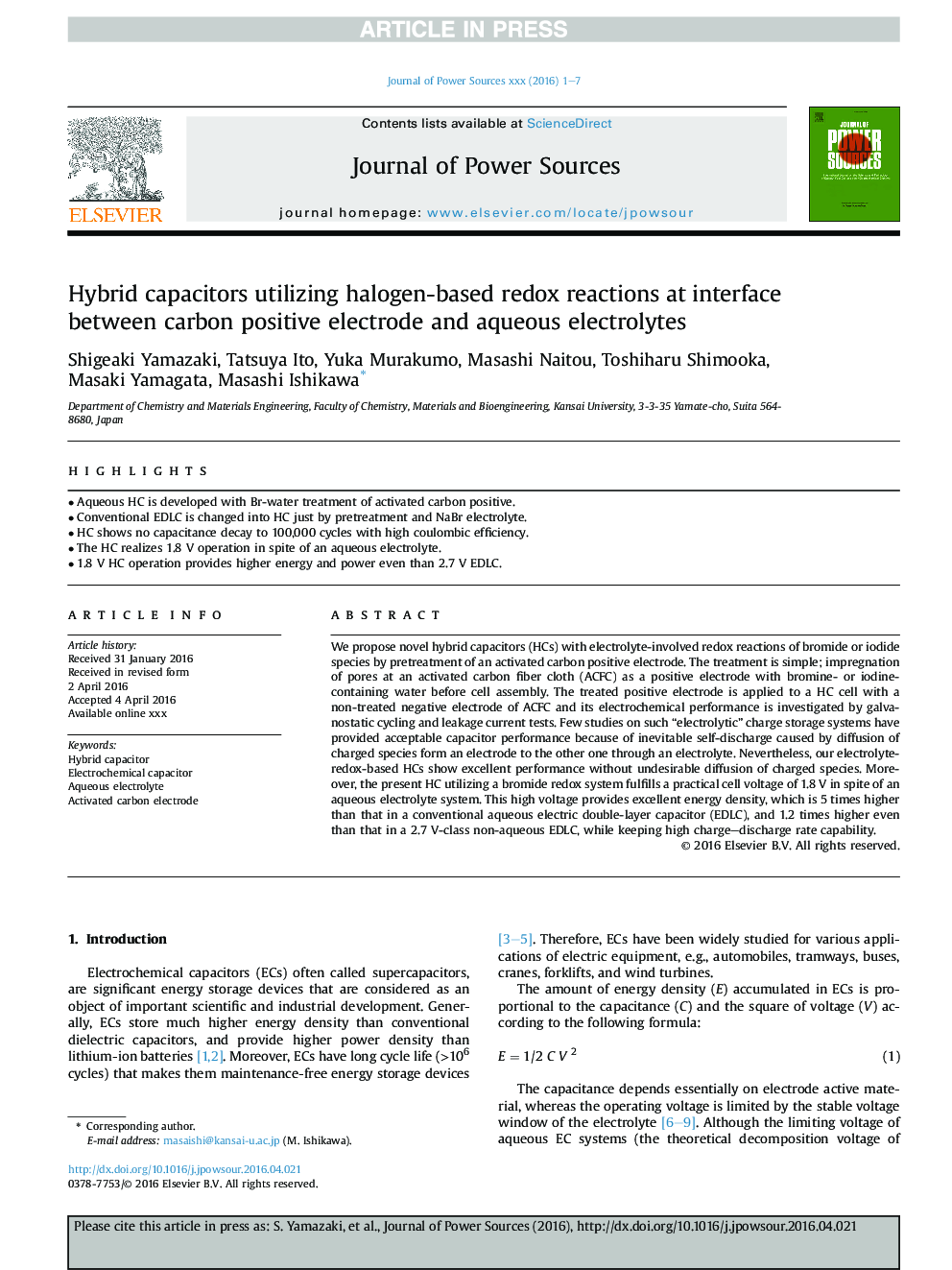| Article ID | Journal | Published Year | Pages | File Type |
|---|---|---|---|---|
| 7727142 | Journal of Power Sources | 2016 | 7 Pages |
Abstract
We propose novel hybrid capacitors (HCs) with electrolyte-involved redox reactions of bromide or iodide species by pretreatment of an activated carbon positive electrode. The treatment is simple; impregnation of pores at an activated carbon fiber cloth (ACFC) as a positive electrode with bromine- or iodine-containing water before cell assembly. The treated positive electrode is applied to a HC cell with a non-treated negative electrode of ACFC and its electrochemical performance is investigated by galvanostatic cycling and leakage current tests. Few studies on such “electrolytic” charge storage systems have provided acceptable capacitor performance because of inevitable self-discharge caused by diffusion of charged species form an electrode to the other one through an electrolyte. Nevertheless, our electrolyte-redox-based HCs show excellent performance without undesirable diffusion of charged species. Moreover, the present HC utilizing a bromide redox system fulfills a practical cell voltage of 1.8Â V in spite of an aqueous electrolyte system. This high voltage provides excellent energy density, which is 5 times higher than that in a conventional aqueous electric double-layer capacitor (EDLC), and 1.2 times higher even than that in a 2.7Â V-class non-aqueous EDLC, while keeping high charge-discharge rate capability.
Related Topics
Physical Sciences and Engineering
Chemistry
Electrochemistry
Authors
Shigeaki Yamazaki, Tatsuya Ito, Yuka Murakumo, Masashi Naitou, Toshiharu Shimooka, Masaki Yamagata, Masashi Ishikawa,
